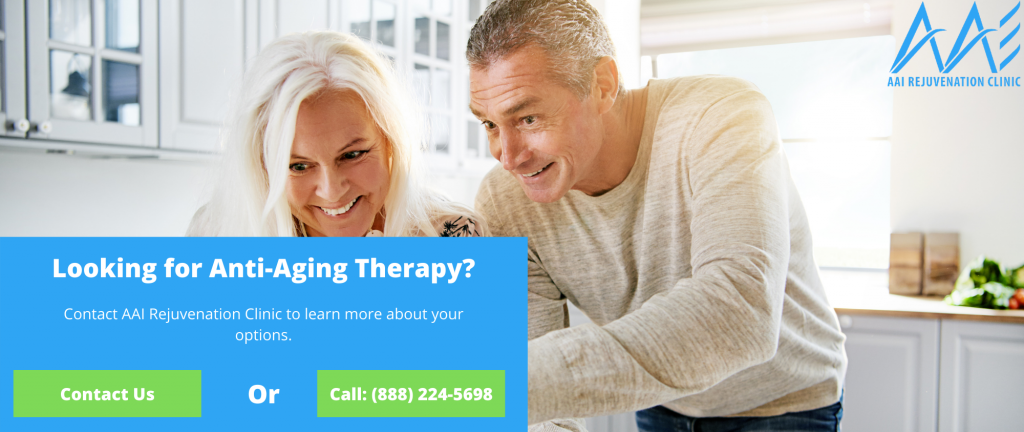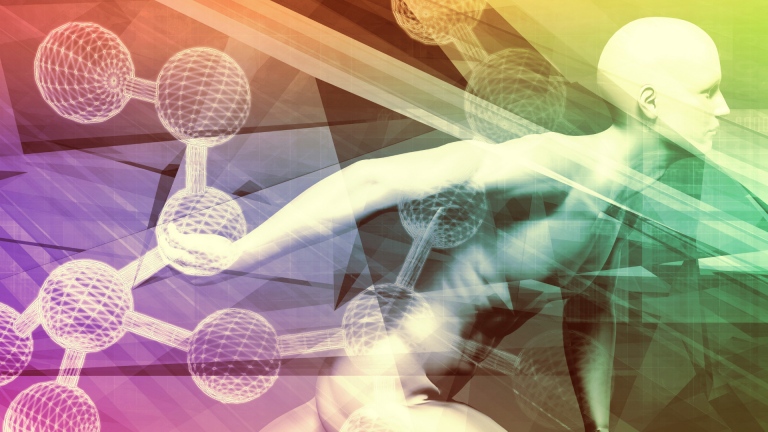Testosterone Therapy For Women
The body undergoes many changes as one age, including the decline of hormones that play a massive role in overall health. Some of the body functions naturally reduce the Testosterone therapy for women levels in the body. Especially when a woman is aging and approaching menopause, they are likely to experience an average testosterone decline. When the symptoms of menopause start becoming apparent, Hormone replacement therapy (HRT) is used to address them.
Do Women Need TRT?
Female bodies need testosterone, which they convert into female sex hormones. Women produce enough estrogen and testosterone to last through puberty and young adulthood. While significant amounts of testosterone are created, it is usually converted into estrogen, the female sex hormone. The primary use of testosterone in women is to maintain good vaginal & menstrual health, enhance sex drive, boost fertility, strengthen bones, and boost breast health.
The standard testosterone levels for women often lie between 15 to 70 ng/dl of blood. When the testosterone levels go below 15 ng/dl, the results might be low sex drive, vaginal dryness, fertility problems, osteoporosis, changes in breast tissues, and irregular/no menstrual periods.
However, high testosterone levels, i.e., more than 70 ng/dl, translate to a condition known as polycystic ovarian syndrome, among other effects. This condition negatively impacts monthly periods affecting your ability to ovulate. It is also abbreviated as PCOS and can cause different symptoms, like infertility caused by lack of ovulation, making it difficult to get pregnant. It is also associated with skin-related problems like acne, dandruff, oily skin, and dark-patched skin. PCOS can also cause irregular or non-existent periods, miscarriage, infertility, ovarian cysts, and excess hair growth on the toes, back, face, chest, thumbs, and stomach.
Unbalanced testosterone in females affects general health, so women need TRT to treat abnormally low testosterone levels.

How to Know When it is For You
The level of testosterone changes throughout the life of a woman. It’s common for the group to change at different points of the day and during the menstrual cycle. When there is any testosterone imbalance, the woman’s health is at risk of deterioration. Here are some symptoms that can be easily noticed as a sign of low testosterone and a need for TRT treatment.
Weakened Muscles
The weakness of muscles comes with several different side effects. You will notice sluggishness and high levels of fatigue. Weak muscles often manifest with age decline, and as time elapses, mundane tasks tend to be hard to accomplish timely.
Sleep Disturbances
Sleep patterns tend to change. That may result in irregular resting periods. It may also bring about unwanted weight gain, and if experiencing such, you should consider TRT, which corrects the situation.
Low Sex Drive
While testosterone is known as the ‘male hormone,’ it is also present in females. Low testosterone levels might affect how a woman reacts to sexual advances. It might, in turn, affect her sexual satisfaction. In addition, some other sexually related anomalies might arise, such as the dryness of the vagina, irregular menstrual cycle, and fertility problems.
Loss Of Bone Density
Testosterone is a crucial player in the maintenance of bone structure. Decreased levels usually affect the strength of the bones. It might affect the health of your joints, which might result in constant aches.
It is paramount to remember that this area is still being researched. These symptoms might also appear in other ailments. A trained doctor needs to check for other complications before diagnosis. They might look for depression, stress, the transition to menopause, or thyroid disease to ascertain that the symptoms indicate low testosterone levels.
To understand testosterone deficiency in a woman’s body, you need to understand some of the causes of low testosterone levels. The two leading causes are.
Menopause
Menopause is the most common cause of low testosterone for women who have advanced in age. During menopause, the functions of the ovaries tend to seize. With the charge in the position, it’s quite automatic that testosterone levels will significantly drop.
Ovarian And Pituitary Trauma
The testosterone level may drop for young women if there is an underlying issue with the ovaries or the pituitary gland. The problem might arise from a number of reasons, for example, during delivery or even an accident. A less common cause of low testosterone levels in women is:
Vitamin Deficiency
Younger women are the most susceptible to this type of complication. Vitamin deficiencies are usually caused by several genetic errors where the body cannot absorb vitamin b12, zinc, folate, glutamine, and others. Amino acids and vitamins are responsible for the production of testosterone.
Benefits of TRT in Women
Low-T in women also has implications. However, testosterone replacement therapy has both immediate and long-term benefits to the body. Here are some of the primary benefits.
Better Skin
As you age, the collagen levels tend to deplete, resulting in wrinkling and skin aging. Testosterone replacement therapy plays a crucial role in fighting skin sagging. The presence of testosterone brings back collagen production to its former self. After a few visits to the doctor’s office, you might notice brighter and less wrinkly skin.
Improved Mood and Energy
As per the symptoms, you have noticed that a low testosterone level comes with fatigue and sluggishness. Testosterone replacement therapy tends to push that cloud away. You become more energetic and more zealous than you have been. A balanced testosterone level in the body tends to bring about a feel-good mood and thwarts depression.
Hair Regrowth
As a direct side effect, you can quickly notice the thickening of hair follicles to stop hair from falling out. Do not expect new hair follicles to appear cause that’s impossible. The only thing that happens is that hair growth is stimulated, and hair might pop out of once unresponsive follicles. Here are some long-term benefits:
Balanced Sugar Levels
When the body becomes unresponsive to insulin due to unhealthy eating, you are usually at a high risk of complications. Testosterone replacement therapy in women tends to alter such body malfunctions. The presence of testosterone helps in making the body more responsive to insulin. Over time, the treatment fosters the growth of muscle cells that respond timely to insulin while high sugar levels are present.
Strengthening of Bones
When the body lacks testosterone, the bones lack density and are brittle. This puts a woman’s skeletal structure at a high risk of fractures. Testosterone replacement therapy helps maintain the health of the bone cells and enhances bone growth. The treatment ensures the bones remain healthy and strong as a woman ages.
Prevention of Heart Disease
Heart diseases affect all ages as opposed to previous ideas involving only the old. The healthiness of the heart is always important to avoid any complications within your body. The body tends to regain proper functioning with continued testosterone replacement therapy, as seen from the previous benefits. When the body has a hormonal balance, cardiovascular risks are always low.
Regained Sex Drive
With a low libido, most women tend to become frustrated, and that affects their interaction with the opposite gender that, includes the spouse. Testosterone replacement therapy has proven evidence of changing the levels of your sex drive. It has a positive track record for improving the libido of both men and women alike; for postmenopausal women facing a lowered level of sex drive, testosterone replacement therapy combined with other hormone therapy tends to bring back the flickering sexual flare. Apart from getting around the sex drive, sensual satisfaction is also achieved. The dryness of the vagina and other complications are fine-tuned.
Other HRT Options for Women
Just like testosterone, estrogen levels drop when women get to menopause. When experiencing menopausal symptoms, HRT is used. It is also referred to as estrogen replacement therapy, hormone therapy, or menopausal hormone therapy and is compounded differently depending on the patient’s health. There are different ways of taking HRT, as explained below;
Estrogen Tablets
Estrogen tablets are more common than other methods of HRT and are taken once daily. Some types of estrogen tablets have a somewhat complicated schedule, but most are simple and are taken without food. Two unique advantages are that estrogen tablets can reduce the chances of contracting osteoporosis and reduce the likelihood of menopause symptoms.
Vaginal Estrogen
There are also other forms of estrogen applied directly to the vagina. These are effective for issues such as burning or pain during sex, vaginal dryness, and itchiness. They could come in the form of insertable rings, tablets, or creams; for obvious reasons, they all use different dosing schedules. For instance, creams can be applied a few times a week, while vaginal tablets can be used daily before changing the dosing to a few times weekly. Vaginal rings, on the other hand, are mostly replaced after three months.
Estrogen Patches
The estrogen patches are worn on the waistline and, depending on the dosage, sometimes could be for a week or can be changed once or twice within the week. This is a good alternative if you prefer to avoid taking daily tablets. It also helps avoid some of the side effects of using other HRT methods, like blood clots and indigestion.
Topical Estrogen
You could also use creams, sprays, and gels for your HRT treatment. Either of these options is rubbed into the skin once a day at specific areas depending on the type. For instance, you might be required to rub it into your wrist, arm, legs, shoulders, etc.
Implants
Another alternative for HRT treatment is implants which are tiny pellets inserted mostly around your tummy. The shell releases the hormone into the body and is replaced after depleting it, usually after a few months.
HRT Treatment Routines
With the different HRT options, there are two distinct treatment routines for you to consider, sequential or cyclical HRT and continuous combined HRT.
Cyclical HRT
If you are already experiencing menopausal symptoms and under the combined treatment routine but still get your periods, you might need to start cyclical HRT. Monthly HRT is one of the two types of cyclical HRT, where you must take estrogen and progestogen. This is usually taken during the final two weeks of your menstrual cycle and is mainly recommended for women with regular periods. The second type of cyclical HRT is the 3-monthly HRT taken daily. You will also need to take it with progestogen for two weeks every three months, which is mainly recommended for those women with irregular periods.
Continuous Combined HRT
The combined HRT is best for postmenopausal women. You are considered a postmenopausal woman if you haven’t had your periods for about a year. With the combined HRT, you are required to take both estrogen and progestogen daily.
How to Get Treatment
You are experiencing most or some symptoms suggestive of the need for TRT treatment, but do you know where to begin? Your safest and most convenient option would be finding an anti-aging clinic that offers HRT treatment. To get the best treatment, you must find a clinic that specializes in your needs.
So, you will be looking for an anti-aging clinic that deals with hormone therapy and other anti-aging treatments. The following are some of the top factors to consider when choosing a clinic for TRT treatment.
Professionalism and Friendly Customer Service
You will receive hormone therapy treatment indefinitely, so finding an anti-aging clinic with friendly customer service is essential. After shortlisting the clinics you are interested in, please make an inquiry call or send an email and pay attention to how they respond to you. Are they kind and willing to answer your questions and take you through the procedure? Lousy customer service is a turnoff, so find a place where you will be treated well. In addition to friendly customer service, professionalism is equally essential. Is the communication professional, and how presentable is the website?
Check for Reviews
What other patients say about a particular clinic should tell you a lot. Search online for any reviews you can get, and check what people are complaining about or what they highly commend about the clinic. An anti-aging clinic with good reviews and ratings is always a good option. And while it is good to check the good reviews, the evil thoughts will also tell you much about where they fall short. Also, you can ask your friends and family to recommend any good clinics they know about.
Skill and Experience
Experience and skill matter a lot. They make one of the most critical factors before choosing an anti-aging clinic. Hormone therapy is a delicate treatment, so having a skilled professional do it is vital. Also, the amount of experience matters since your provider knows the common mistakes made during the process and how to avoid them.
Calm and Relaxing Environment
If you visit the clinic, look for one with a relaxing and calm environment. And even if you go online, ensure the process is stress-free. The last thing you would want is to have the treatment abruptly stopped halfway without an explanation or have to deal with challenging people. This would stress you up, which beats the purpose of the treatment.
Personalized Experiences
You will also want to look for a clinic that offers personalized experiences since TRT treatment only works for some. Find a clinic offering a personalized approach to TRT treatment. From a customized treatment plan to the expected recovery times, you want to find a clinic run by experts providing the best anti-aging practices. Moreover, they should be able to give a detailed consultation before the treatment. You want a deep insight into the therapy; incomplete information and a rushed consultation will not provide that.
Treatment will likely begin immediately once you decide on the best anti-aging clinic. You already know what your symptoms are. The next phase would be an in-depth consultation and bloodwork carried out. This helps to ascertain your needs and tailor a treatment plan just for you.
Take Away
After you begin your HRT treatment, keep your doctor updated about any changes and new symptoms you may start to experience. In addition to your treatment, maintain a healthy lifestyle, from physical fitness to healthy diets and managing bad habits like drinking and smoking. A good TRT treatment and a healthy lifestyle will go a long way. Also, the clinic you choose to work with plays a massive role in the results you get for TRT treatment. To that end, consider working with AAI Rejuvenation Clinic, which will create a personalized TRT treatment based on your needs most reliably and conveniently possible.
**NOTE** The content in this blog is subject to interpretation and is the opinion of the content writer. We do not claim it to be fact. We encourage you to consult a medical doctor before taking any prescribed medications or supplements.
Conclusion
Supporting Hormones health is essential for overall well-being and vitality. By incorporating regular exercise, proper nutrition, adequate sleep, stress management techniques, and IV therapy, you can help maintain optimal testosterone levels and lead a healthy, balanced life. Always consult a healthcare professional before making significant changes to your lifestyle or starting any new treatments to ensure they suit your needs.
At AAI Rejuvenation Clinic, we advise anyone to think seriously about beginning Hormone treatment if there is no medical need for it. However, we will take every precaution to ensure that you read your program’s positive benefits by providing the latest at-home hormonal mouth-swab testing to ensure we are continually monitoring your progress and aware of any adverse side effects. Fill out the Medical History Form, or if you need more information, call us at (866) 224-5698 or (866) AAI-Low-T.
Low Hormone Symptoms
- Motivation
- Sex Drive and Desire
- Depression
- Fatigue
- Erectile Dysfunction
- Cholesterol
- Low Energy
- Memory Loss
- Osteoporosis
- Wounds & Illness
- Muscle Mass
- Sleep Disturbances
- Thyroid Dysfunction
- Weight Gain

]]>



